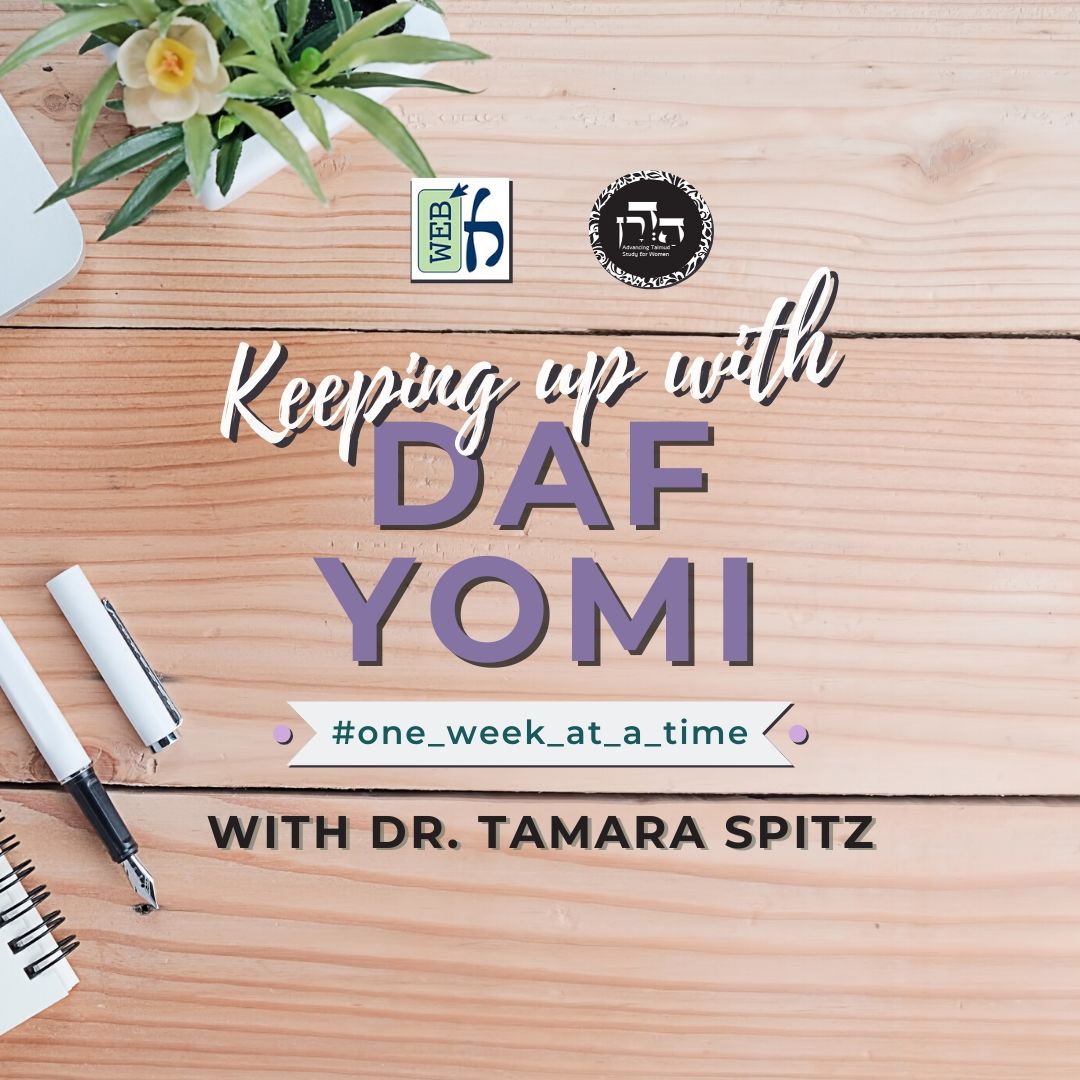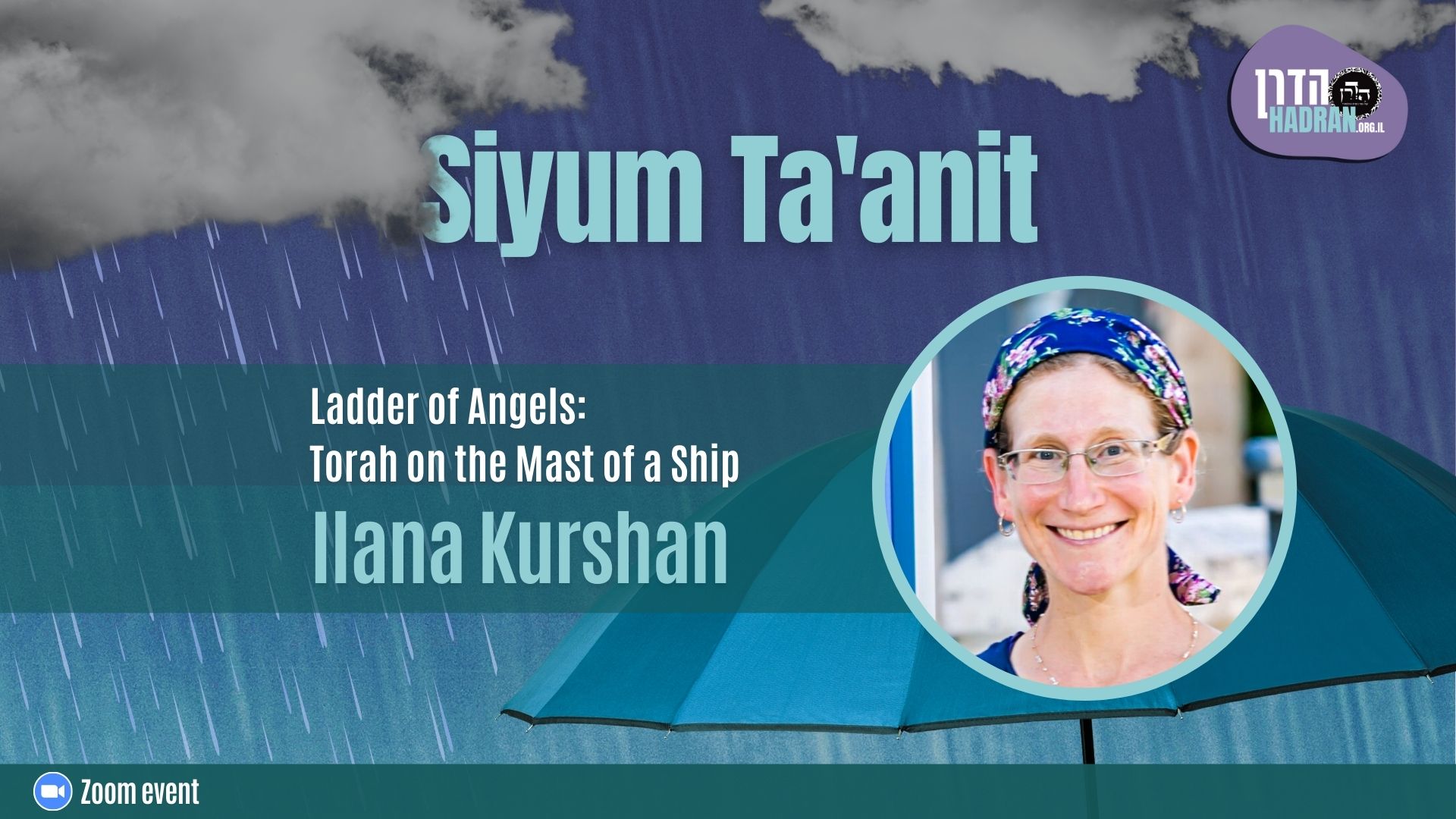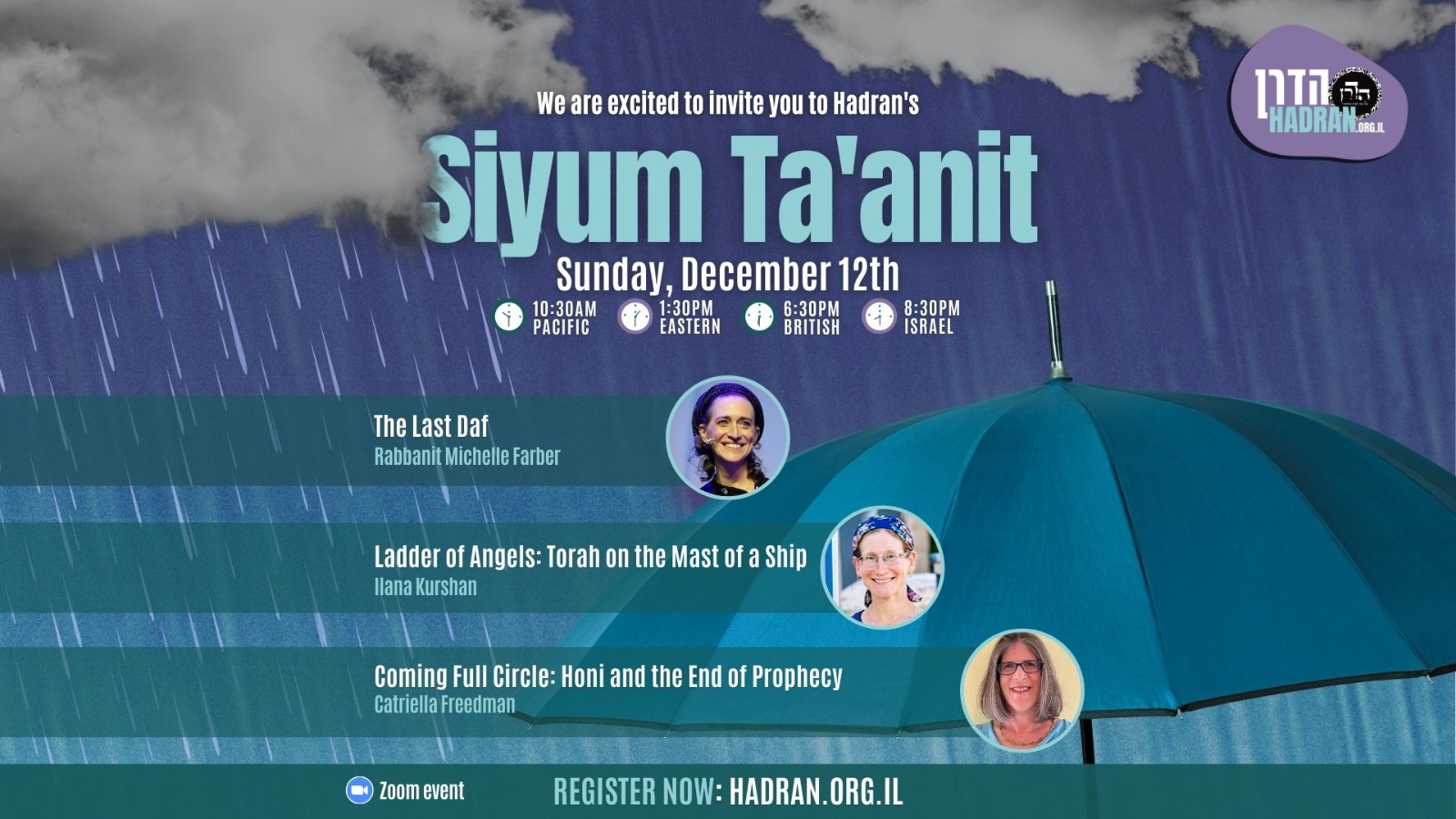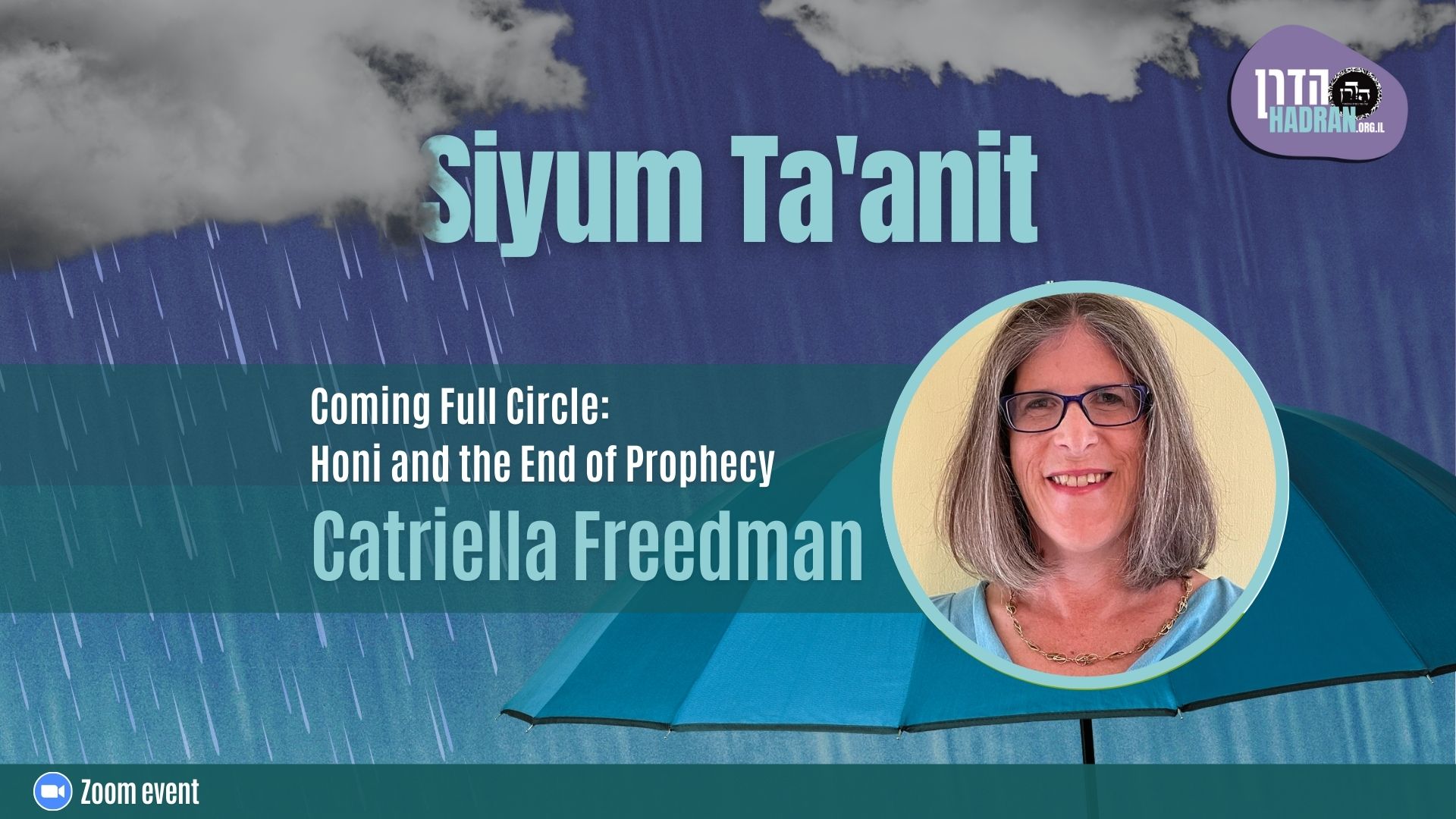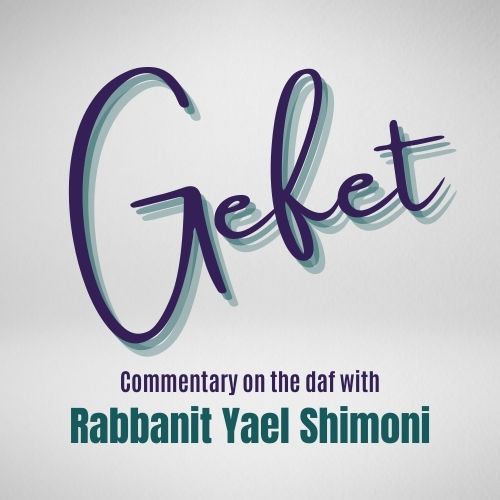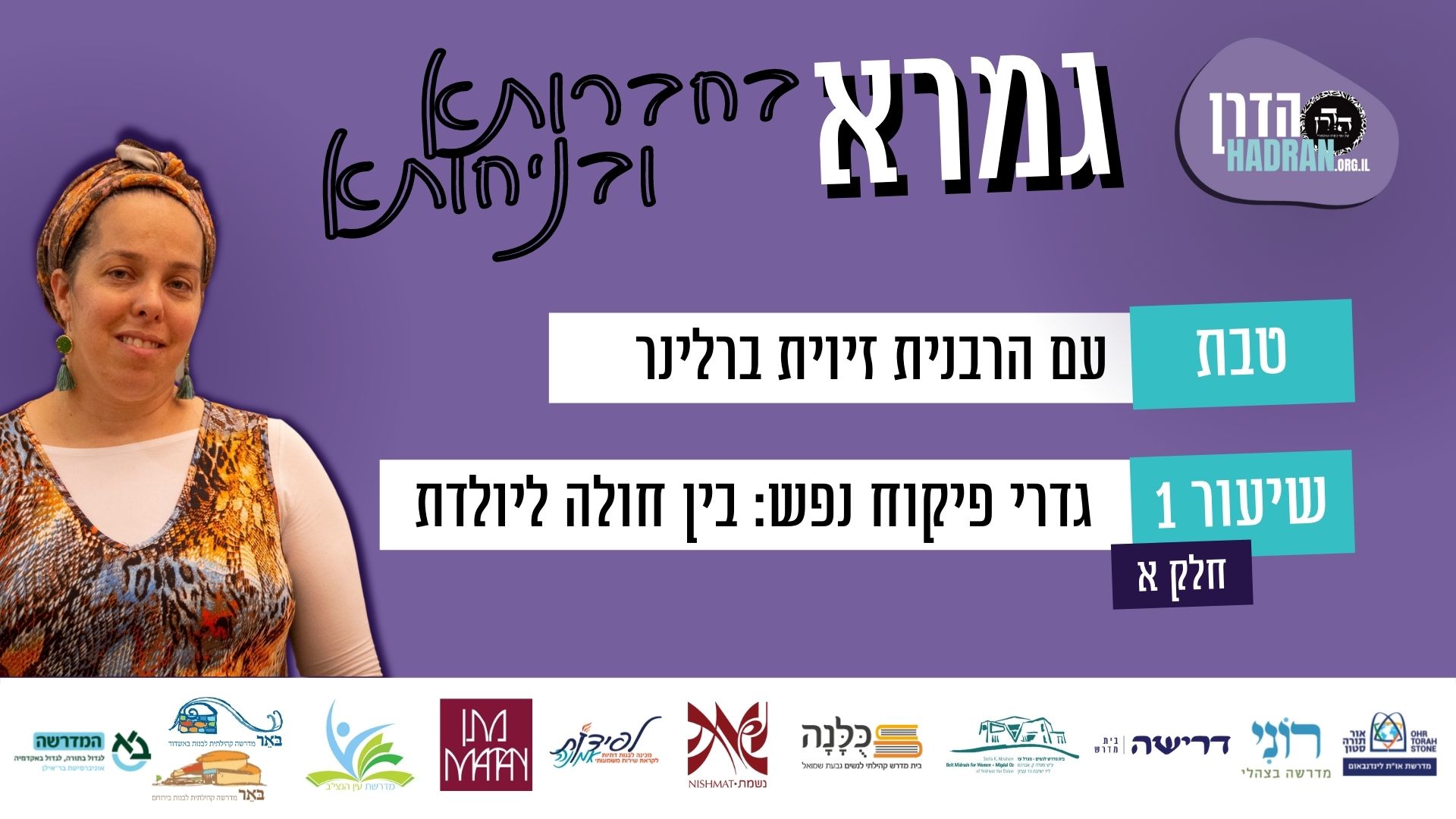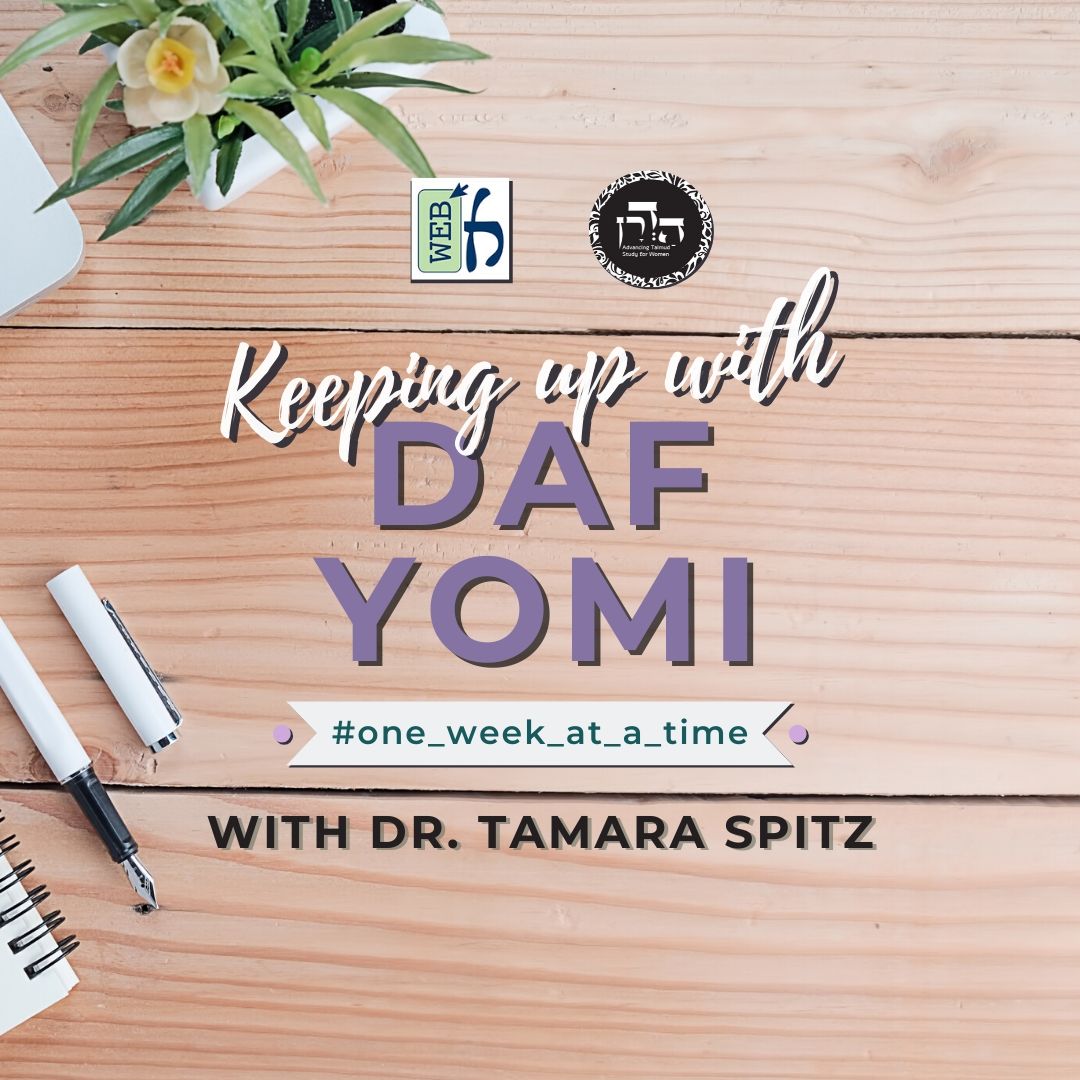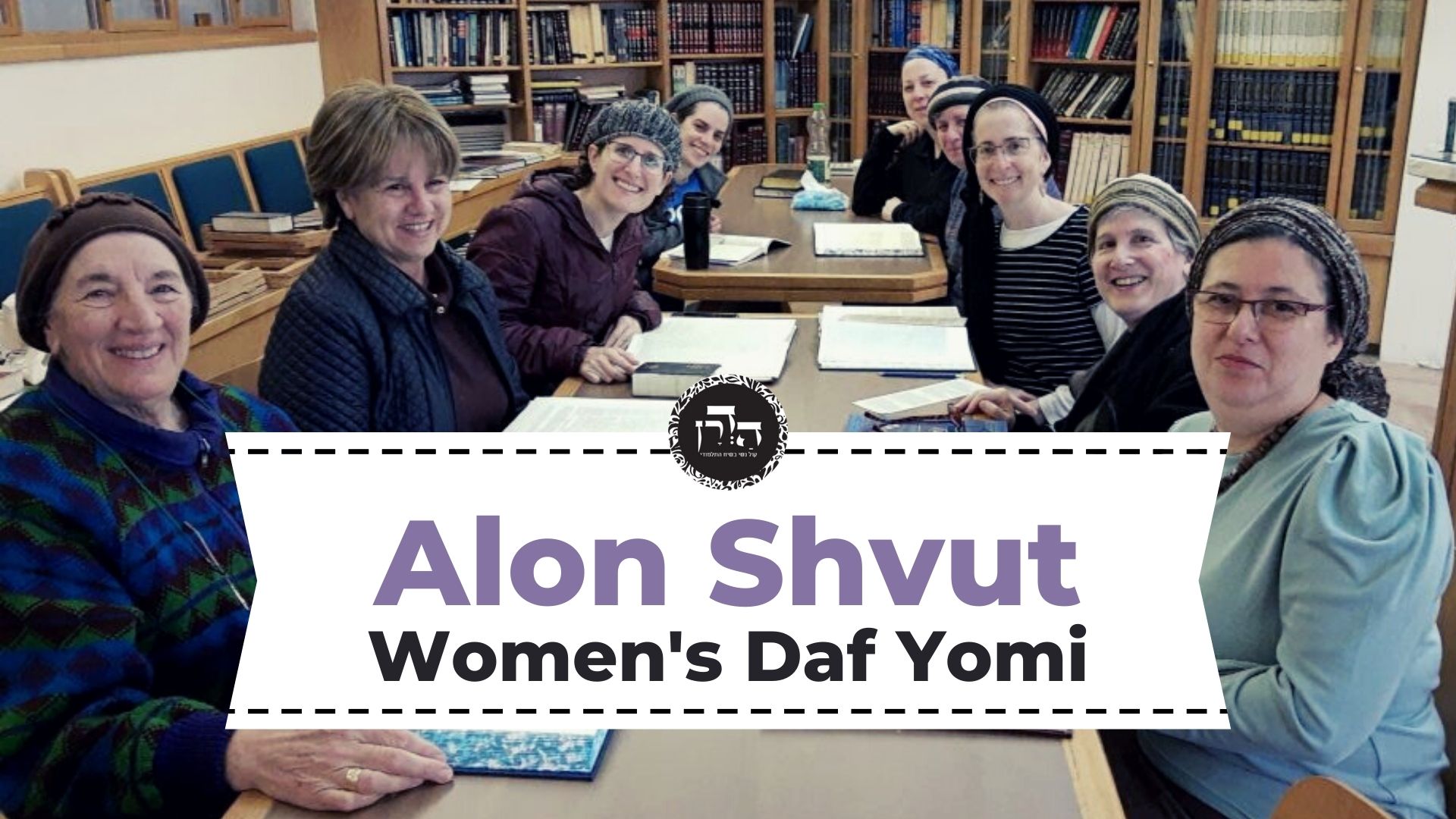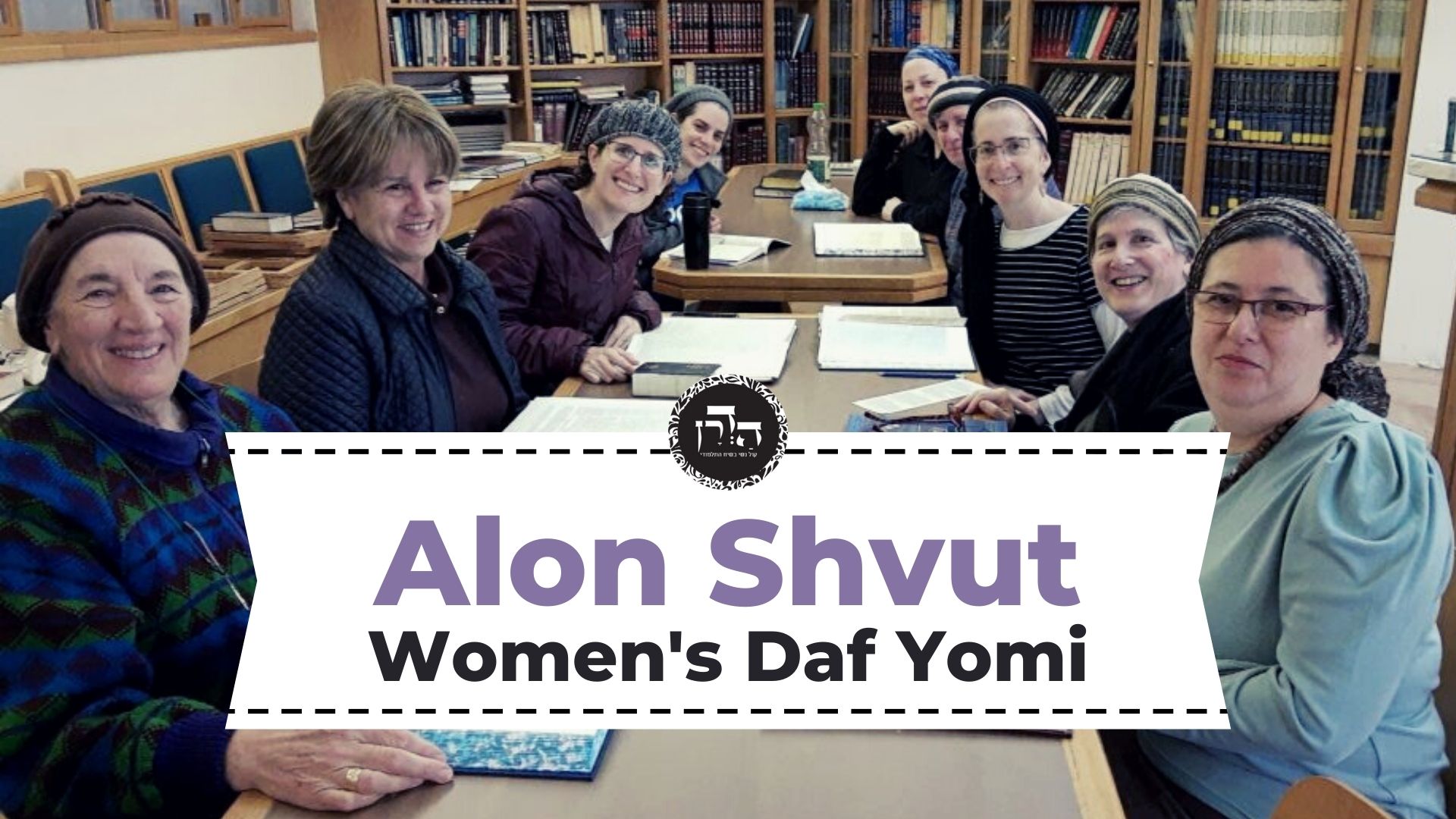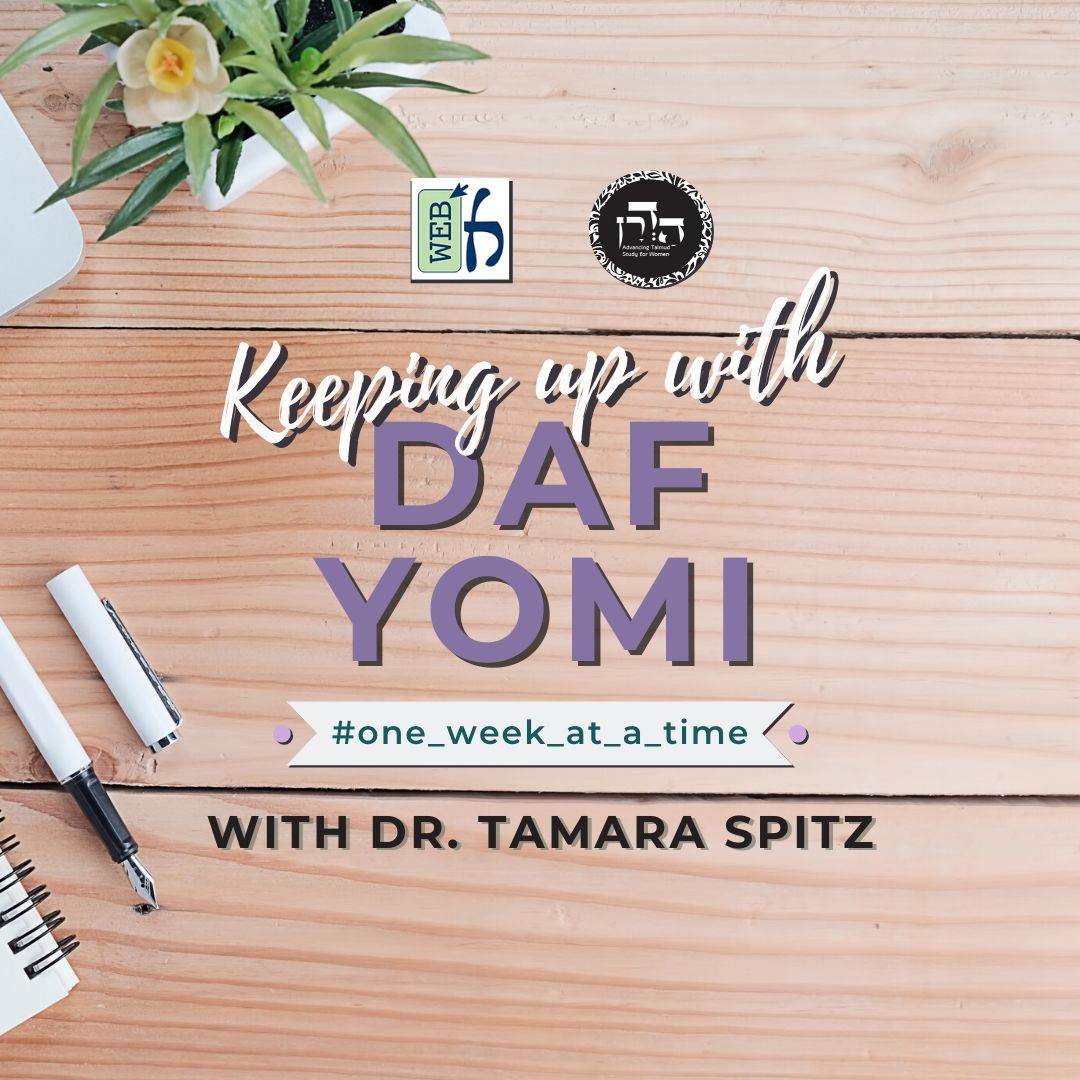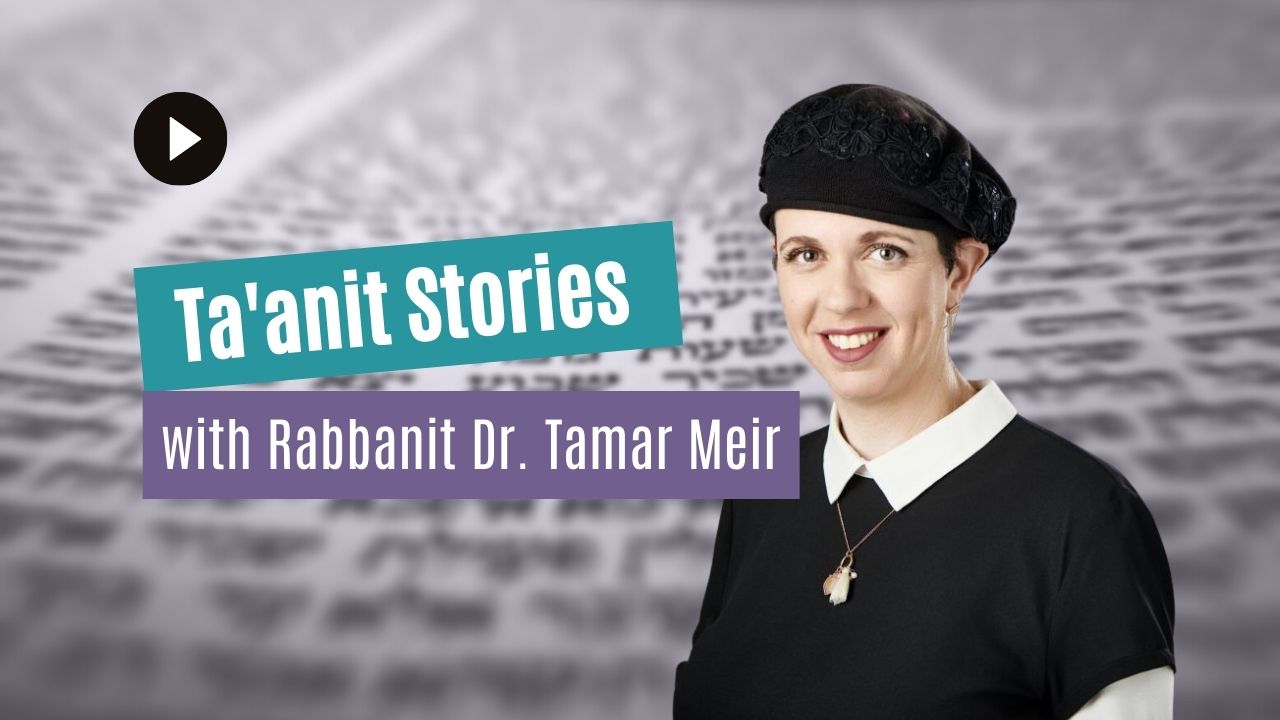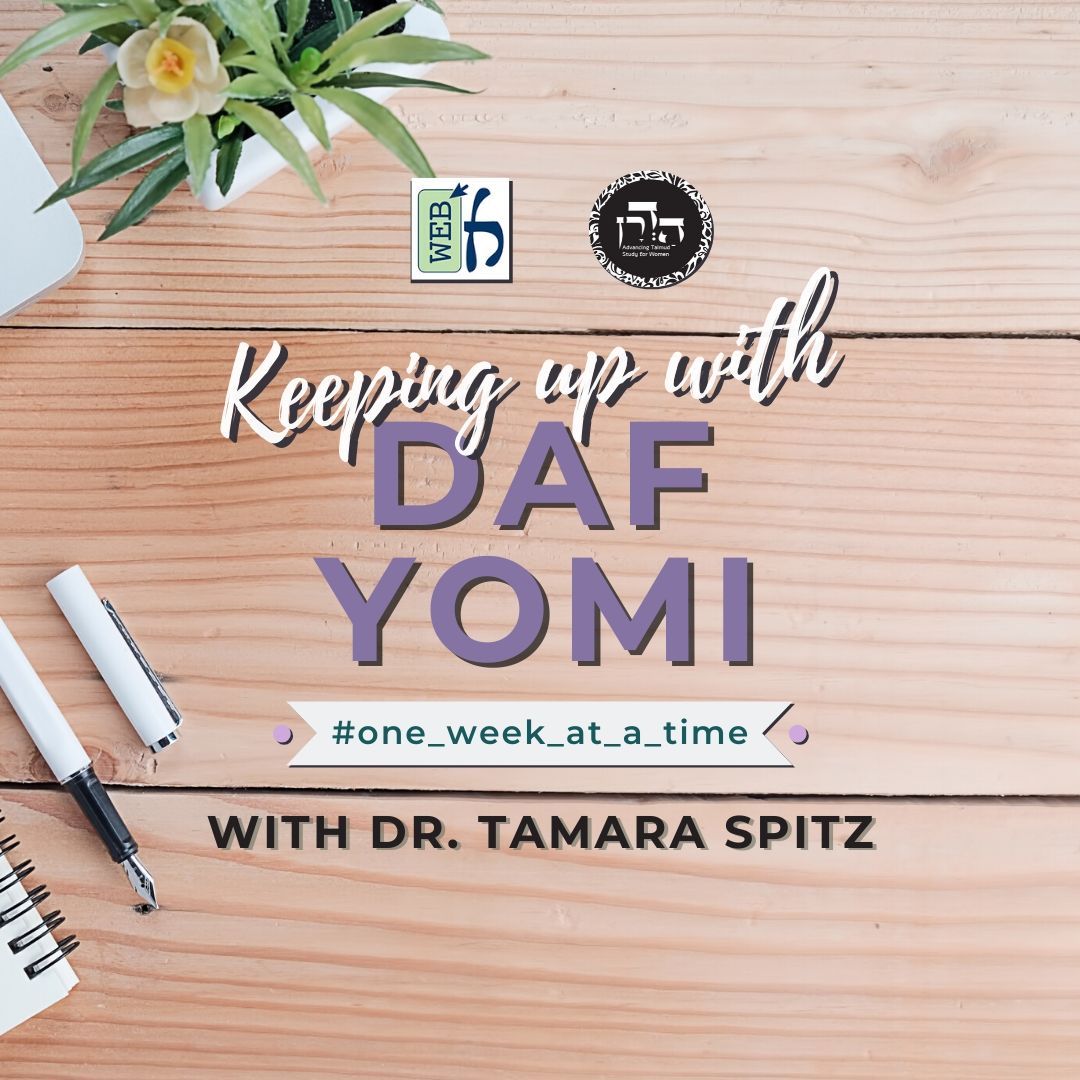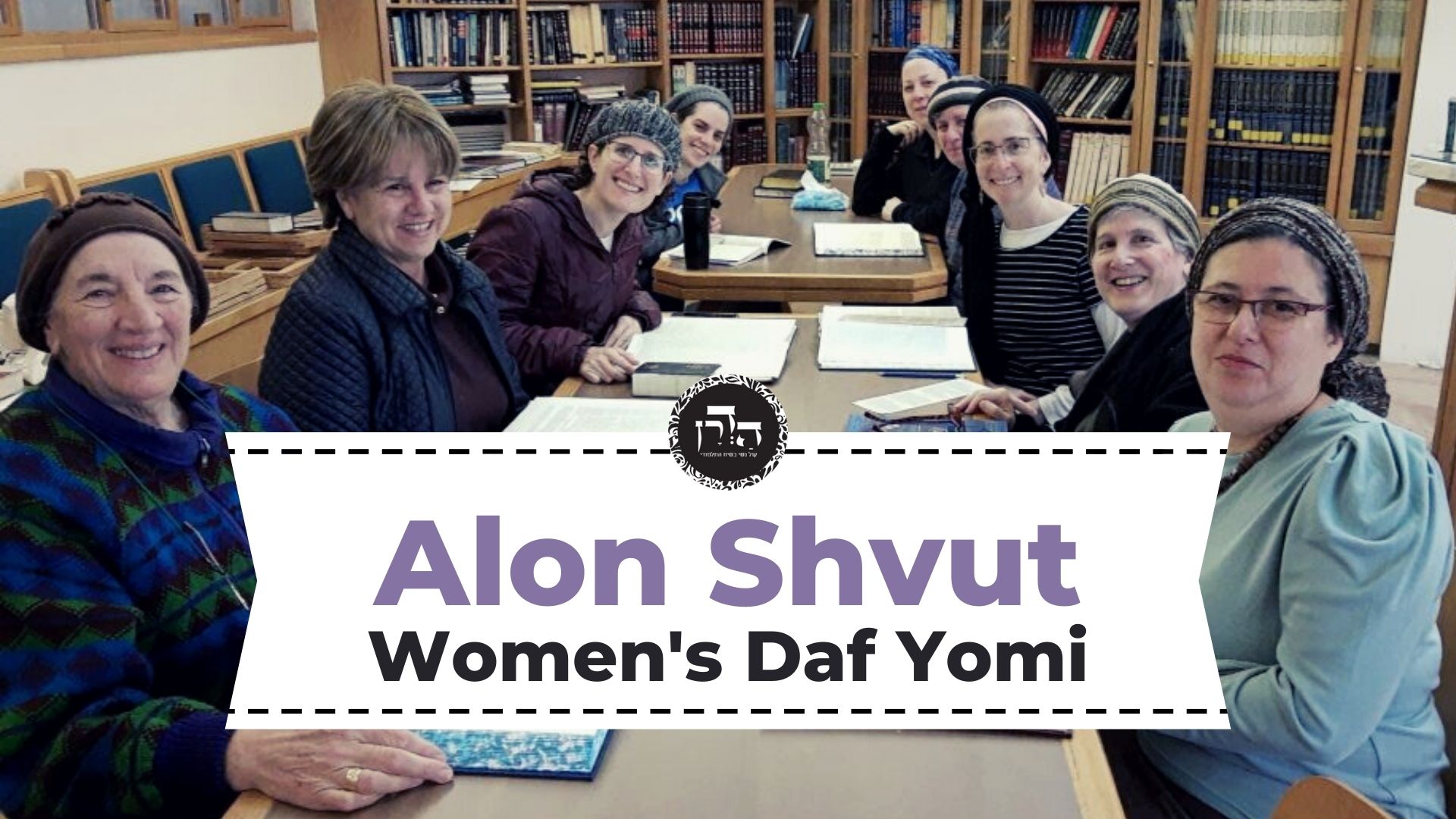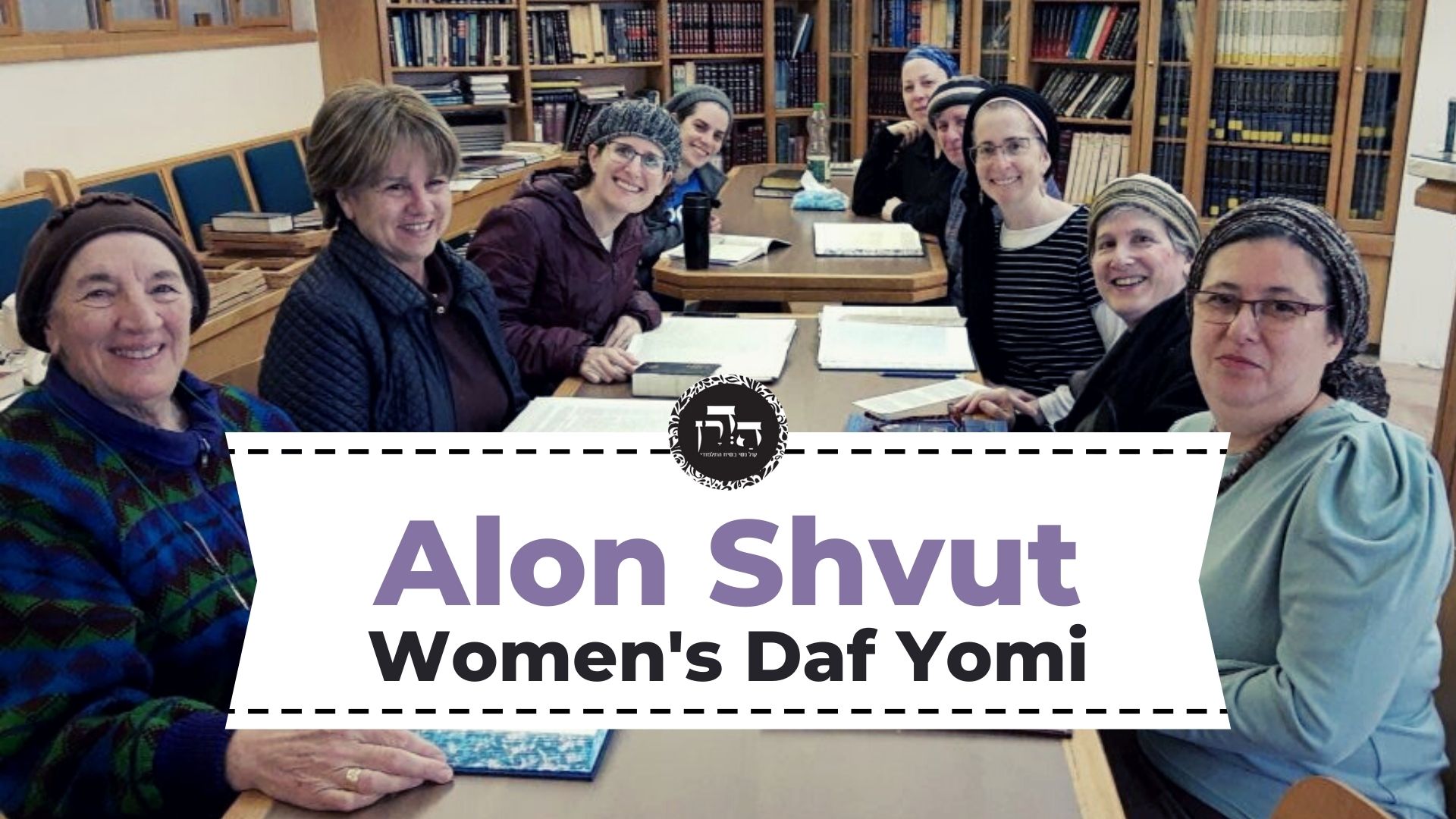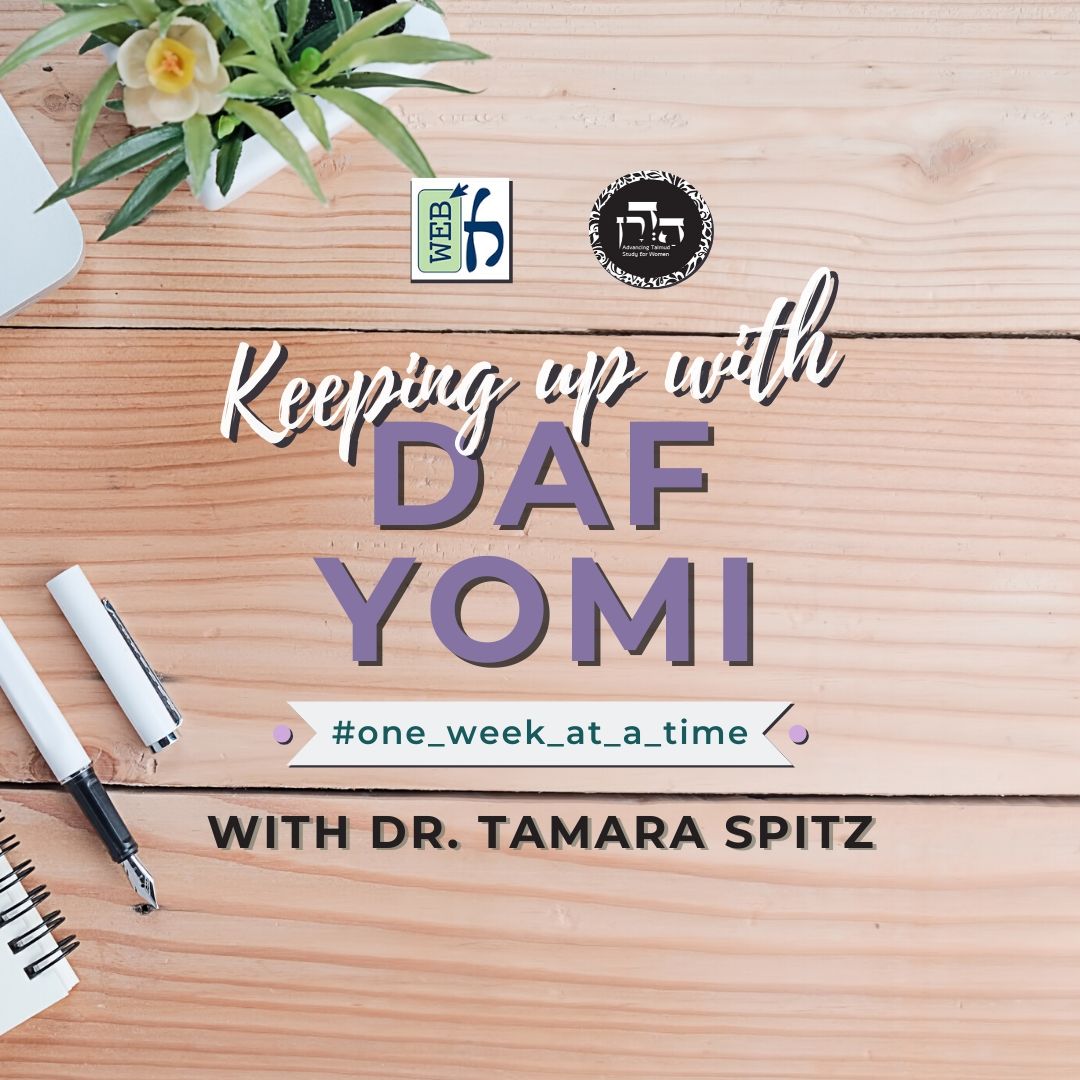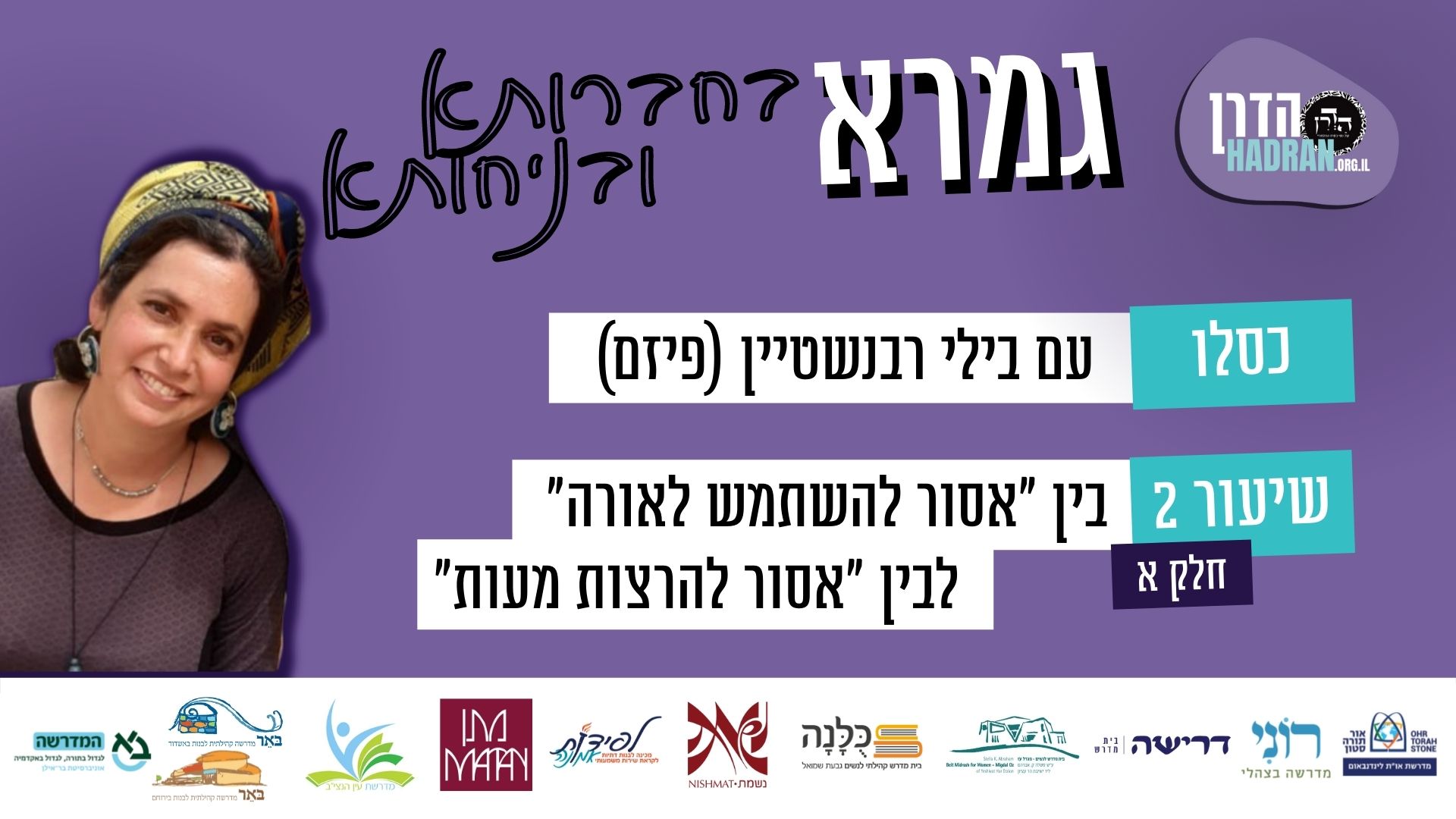Taanit 27
Share this shiur:
Want to dedicate learning? Get started here:


Summary
Is the prohibition for kohanim to bless the people while drunk derived from laws of nazir or from a juxtaposition in the verse Devraim 10:8 between serving in the Temple and blessing the people? Why were the maamadot instituted? A braita states that 24 mishmarot of kohanim were in Israel and 12 were in Jericho. Does that mean there were 36!? And what exactly is meant in Israel/in Jericho? Kohanim and levites are essential for sacrifices. Are the maamadot also? What about the musical instruments? Is the important part of the music the voices or the instruments? Moshe set up eight rotations of kohanim but a different source says sixteen. Also, there are contradictory statements about how and when it became twenty-four. Which families of kohanim that were in the first Temple came back to Israel when the second Temple was built and served there as well. Why do we read the Torah portion of the creation of the world during the maamadot? The people in the maamadot would fast from Monday-Thursday of that week. Regarding the Torah portion, in a case where there are five verses in one part (one day of creation) and three in the other, the three are all read on one Aliya. But there is a debate between Rav and Shmuel regarding the five – is one verse is repeated in both aliyot or split in half, as one must read a minimum of three verses for each aliya. Difficulties are raised against the different opinions.
Today’s daily daf tools:
Today’s daily daf tools:
Delve Deeper
Broaden your understanding of the topics on this daf with classes and podcasts from top women Talmud scholars.
New to Talmud?
Check out our resources designed to help you navigate a page of Talmud – and study at the pace, level and style that fits you.
The Hadran Women’s Tapestry
Meet the diverse women learning Gemara at Hadran and hear their stories.
Taanit 27
אִי מָה מְשָׁרֵת — בַּעַל מוּם לָא, אַף כֹּהֵן מְבָרֵךְ — בַּעַל מוּם לָא! הָא אִיתַּקַּשׁ לְנָזִיר.
The Gemara asks: If so, then just as a priest who ministers in the Temple may not be physically blemished, so too, a priest who recites the benediction may not be blemished. The Gemara rejects this suggestion: The priest who recites the benediction is also juxtaposed to a nazirite, who is not affected by a blemish.
וּמַאי חָזֵית דְּמַקְּשַׁתְּ לְקוּלָּא? אַקֵּישׁ לְחוּמְרָא! אַסְמַכְתָּא נִינְהוּ מִדְּרַבָּנַן, וּלְקוּלָּא.
The Gemara asks: And what did you see that you juxtaposed the cases in favor of a leniency? Perhaps you should juxtapose for a stringency, by comparing the priest who recites the benediction to a nazirite with regard to grape pits, and comparing him to a priest ministering in the Temple in relation to the prohibition against reciting the benediction if he has a physical blemish. The Gemara explains: These proofs are cited merely as support for halakhot that apply by rabbinic law, and consequently, they are interpreted as a leniency, not a stringency.
אֵלּוּ הֵן מַעֲמָדוֹת. לְפִי שֶׁנֶּאֱמַר: ״צַו אֶת בְּנֵי יִשְׂרָאֵל כּוּ׳״. מַאי קָאָמַר? הָכִי קָאָמַר: אֵלּוּ הֵן מַעֲמָדוֹת. וּמָה טַעַם תִּיקְּנוּ מַעֲמָדוֹת, לְפִי שֶׁנֶּאֱמַר: ״צַו אֶת בְּנֵי יִשְׂרָאֵל וְאָמַרְתָּ אֲלֵיהֶם אֶת קׇרְבָּנִי לַחְמִי לְאִשַּׁי״.
§ The mishna taught that these are the non-priestly watches: Since it is stated: “Command the children of Israel.” The Gemara asks: What is the mishna saying about the non-priestly watches? How does the verse relate to the watches? The Gemara explains that the mishna is saying as follows: These are the non-priestly watches, which will be explained later. And what is the reason that they instituted non-priestly watches? Since it is stated: “Command the children of Israel and say to them: My offering of food, which is presented to Me made by a fire, of a sweet savor to Me, you shall observe to sacrifice to Me in their due season” (Numbers 28:2).
וְהֵיאַךְ קׇרְבָּנוֹ שֶׁל אָדָם קָרֵב וְהוּא אֵינוֹ עוֹמֵד עַל גַּבָּיו? הִתְקִינוּ נְבִיאִים הָרִאשׁוֹנִים עֶשְׂרִים וְאַרְבָּעָה מִשְׁמָרוֹת. עַל כָּל מִשְׁמָר וּמִשְׁמָר הָיָה מַעֲמָד בִּירוּשָׁלַיִם שֶׁל כֹּהֲנִים וְשֶׁל לְוִיִּם וְשֶׁל יִשְׂרְאֵלִים. הִגִּיעַ זְמַן מִשְׁמָר לַעֲלוֹת, כֹּהֲנִים וּלְוִיִּם עוֹלִין לִירוּשָׁלַיִם.
The mishna continues: But how can a person’s offering be sacrificed when he is not standing next to it? The early prophets, Samuel and David, instituted twenty-four priestly watches. For each and every priestly watch there was a corresponding watch in Jerusalem of priests, Levites, and Israelites. When the time arrived for the members of a certain priestly watch to ascend, the priests and Levites of that watch would ascend to Jerusalem.
תָּנוּ רַבָּנַן: עֶשְׂרִים וְאַרְבָּעָה מִשְׁמָרוֹת בְּאֶרֶץ יִשְׂרָאֵל, וּשְׁתֵּים עֶשְׂרֵה בִּירִיחוֹ. שְׁתֵּים עֶשְׂרֵה בִּירִיחוֹ?! נְפִישָׁן לְהוּ טוּבָא! אֶלָּא: שְׁתֵּים עֶשְׂרֵה מֵהֶן בִּירִיחוֹ. הִגִּיעַ זְמַן הַמִּשְׁמָר לַעֲלוֹת, חֲצִי הַמִּשְׁמָר הָיָה עוֹלֶה מֵאֶרֶץ יִשְׂרָאֵל לִירוּשָׁלַיִם, וַחֲצִי הַמִּשְׁמָר הָיָה עוֹלֶה מִירִיחוֹ, כְּדֵי שֶׁיְּסַפְּקוּ מַיִם וּמָזוֹן לַאֲחֵיהֶם שֶׁבִּירוּשָׁלַיִם.
The Sages taught: There were twenty-four priestly watches in Eretz Yisrael, and twelve in Jericho. The Gemara expresses surprise at this statement: Twelve in Jericho? In that case there are too many of them, as this makes a total of thirty-six watches. Rather, the baraita should be read as follows: There were twenty-four in total, twelve of which were in Jericho. How so? When the time arrived for the members of a certain priestly watch to ascend, half the priestly watch would ascend from all over Eretz Yisrael to Jerusalem, and half the priestly watch would ascend from Jericho, in order to provide water and food to their brothers in Jerusalem from Jericho.
אָמַר רַב יְהוּדָה אָמַר שְׁמוּאֵל: כֹּהֲנִים וּלְוִיִּם וְיִשְׂרְאֵלִים מְעַכְּבִין אֶת הַקׇּרְבָּן. בְּמַתְנִיתָא תָּנָא רַבִּי שִׁמְעוֹן בֶּן אֶלְעָזָר: כֹּהֲנִים וּלְוִיִּם וּכְלֵי שִׁיר מְעַכְּבִין אֶת הַקׇּרְבָּן. בְּמַאי קָמִיפַּלְגִי? מָר סָבַר: עִיקַּר שִׁירָה בַּפֶּה, וּמָר סָבַר: עִיקַּר שִׁירָה בִּכְלִי.
Rav Yehuda said that Shmuel said: Priests, Levites, and Israelites are all indispensable for the offering, and consequently, they all must be present when the daily offering is sacrificed. It is taught in a baraita that Rabbi Shimon ben Elazar says: Priests, Levites, and musical instruments are indispensable for the offering. The Gemara asks: With regard to what principle do they disagree? One Sage, Shmuel, holds that the main aspect of the Levites’ song that accompanied the offerings is vocal, and one Sage, Rabbi Shimon ben Elazar, holds that the main aspect of their song is instrumental, performed with a vessel, and therefore both the Levites and their instruments must be present for the daily offering.
אָמַר רַב חָמָא בַּר גּוּרְיָא אָמַר רַב: מֹשֶׁה תִּיקֵּן לָהֶם לְיִשְׂרָאֵל שְׁמוֹנָה מִשְׁמָרוֹת, אַרְבָּעָה מֵאֶלְעָזָר וְאַרְבָּעָה מֵאִיתָמָר. בָּא שְׁמוּאֵל וְהֶעֱמִידָן עַל שֵׁשׁ עֶשְׂרֵה, בָּא דָּוִד וְהֶעֱמִידָן עַל עֶשְׂרִים וְאַרְבָּעָה, שֶׁנֶּאֱמַר: ״בִּשְׁנַת הָאַרְבָּעִים לְמַלְכוּת דָּוִיד נִדְרָשׁוּ וַיִּמָּצֵא בָהֶם גִּבּוֹרֵי חַיִל בְּיַעְזֵיר גִּלְעָד״.
Rav Ḥama bar Gurya said that Rav said: Moses initially instituted for the Jews eight priestly watches, four from the descendants of Elazar and four from the descendants of Itamar. Samuel came and established them as sixteen, and David came and established them as twenty-four, as it is stated, after the watches are listed: “In the fortieth year of the reign of David they were sought for, and there were found among them mighty men of valor at Jazer of Gilead” (I Chronicles 26:31).
מֵיתִיבִי: מֹשֶׁה תִּיקֵּן לָהֶם לְיִשְׂרָאֵל שְׁמוֹנָה מִשְׁמָרוֹת, אַרְבָּעָה מֵאֶלְעָזָר וְאַרְבְּעָה מֵאִיתָמָר, וּבָא דָּוִד וּשְׁמוּאֵל וְהֶעֱמִידָן עַל עֶשְׂרִים וְאַרְבַּע, שֶׁנֶּאֱמַר: ״הֵמָּה יִסַּד דָּוִיד וּשְׁמוּאֵל הָרֹאֶה בֶּאֱמוּנָתָם״! הָכִי קָאָמַר: מִיִּסּוּדוֹ שֶׁל דָּוִד וּשְׁמוּאֵל הָרָמָתִי הֶעֱמִידוּם עַל עֶשְׂרִים וְאַרְבַּע.
The Gemara raises an objection against this opinion from a baraita. Moses instituted for the Jews eight priestly watches, four from Elazar and four from Itamar. And David and Samuel came and established them as twenty-four, as it is stated: “Whom David and Samuel the seer ordained in their set office” (I Chronicles 9:22). This baraita indicates that David and Samuel together established the twenty-four watches. The Gemara explains: This is what the baraita is saying: Through their ordination by David and Samuel of Rama the priestly watches incrementally increased in number until they established them as twenty-four.
תַּנְיָא אִידַּךְ: מֹשֶׁה תִּיקֵּן לָהֶם לְיִשְׂרָאֵל שֵׁשׁ עֶשְׂרֵה מִשְׁמָרוֹת, שְׁמוֹנָה מֵאֶלְעָזָר וּשְׁמוֹנָה מֵאִיתָמָר. וּכְשֶׁרַבּוּ בְּנֵי אֶלְעָזָר עַל בְּנֵי אִיתָמָר, חִלְּקוּם וְהֶעֱמִידוּם עַל עֶשְׂרִים וְאַרְבַּע, שֶׁנֶּאֱמַר: ״וַיִּמָּצְאוּ בְנֵי אֶלְעָזָר רַבִּים לְרָאשֵׁי הַגְּבָרִים מִן בְּנֵי אִיתָמָר וַיַּחְלְקוּם לִבְנֵי אֶלְעָזָר רָאשִׁים לְבֵית אָבוֹת שִׁשָּׁה עָשָׂר וְלִבְנֵי אִיתָמָר לְבֵית אֲבוֹתָם שְׁמוֹנָה״, וְאוֹמֵר: ״בֵּית אָב אֶחָד אָחֻז לְאֶלְעָזָר וְאָחֻז אָחֻז לְאִיתָמָר״.
It is taught in another baraita: Moses instituted for the Jews sixteen priestly watches, eight from Elazar and eight from Itamar. And when the descendants of Elazar grew more numerous than the descendants of Itamar, he divided the descendants of Elazar and established them together with the descendants of Itamar as twenty-four watches, as it is stated: “And there were more chief men found of the sons of Elazar than of the sons of Itamar, and they were divided thus: Of the sons of Elazar there were sixteen heads of fathers’ houses, and of the sons of Itamar, according to their fathers’ houses, eight” (I Chronicles 24:4). And it says: “One father’s house taken for Elazar, and proportionately for Itamar” (I Chronicles 24:6).
מַאי ״וְאוֹמֵר״? וְכִי תֵּימָא: כִּי הֵיכִי דִּנְפִישִׁי בְּנֵי אֶלְעָזָר, הָכָא נָמֵי דִּנְפִישִׁי בְּנֵי אִיתָמָר — שְׁמוֹנָה, מֵעִיקָּרָא אַרְבָּעָה הֲווֹ, תָּא שְׁמַע: ״בֵּית אָב אֶחָד אָחֻז לְאֶלְעָזָר וְאָחֻז אָחֻז לְאִיתָמָר״. תְּיוּבְתָּא דְּרַב חָמָא בַּר גּוּרְיָא!
The Gemara asks: What is: And it says? Why was it necessary to quote a second verse? The Gemara explains: And if you would say that just as the descendants of Elazar increased, so too, the descendants of Itamar increased, and the eight watches were initially four, as claimed by Rav Ḥama bar Gurya, then come and hear: “One father’s house taken for Elazar, and proportionately for Itamar,” which indicates that the descendants of Itamar remained as they were. This verse is apparently a conclusive refutation of the opinion of Rav Ḥama bar Gurya, who says that Moses established only eight priestly watches.
אָמַר לְךָ רַב חָמָא בַּר גּוּרְיָא: תַּנָּאֵי הִיא, וַאֲנָא דַּאֲמַרִי כִּי הַאי תַּנָּא דְּאָמַר שְׁמוֹנָה.
The Gemara responds: Rav Ḥama bar Gurya could have said to you that the initial order of the priestly watches is a dispute between tanna’im, as indicated by the previous baraita, and I stated my opinion in accordance with that tanna who said that Moses instituted eight priestly watches.
תָּנוּ רַבָּנַן: אַרְבָּעָה מִשְׁמָרוֹת עָלוּ מִן הַגּוֹלָה, וְאֵלּוּ הֵן: יְדַעְיָה, חָרִים, פַּשְׁחוּר, וְאִימֵּר. עָמְדוּ נְבִיאִים שֶׁבֵּינֵיהֶם,
The Sages taught: Only four priestly watches ascended from the Babylonian exile, while the other twenty stayed in Babylonia. And these are the watches who returned: The descendants of Jedaiah, Harim, Pashhur, and Immer. The prophets among those who returned arose
וְחִלְּקוּם וְהֶעֱמִידוּם עַל עֶשְׂרִים וְאַרְבָּעָה, בְּלָלוּם וּנְתָנוּם בְּקַלְפִּי. בָּא יְדַעְיָה וְנָטַל חֶלְקוֹ וְחֵלֶק חֲבֵרָיו שֵׁשׁ, בָּא חָרִים וְנָטַל חֶלְקוֹ וְחֵלֶק חֲבֵרָיו שֵׁשׁ, וְכֵן פַּשְׁחוּר, וְכֵן אִימֵּר.
and divided them and established them as twenty-four watches. They achieved this by writing the names of these new twenty-four watches on pieces of paper, mixing them up, and putting them in a receptacle [kalfei] from which lots were drawn. A representative from the family of Jedaiah came and drew his portion and the lot of five other watches, for a total of six. Harim came and also drew his portion and the lot of five other watches, a total of six. And likewise Pashhur, and likewise Immer.
וְכֵן הִתְנוּ נְבִיאִים שֶׁבֵּינֵיהֶם: שֶׁאֲפִילּוּ יְהוֹיָרִיב רֹאשׁ מִשְׁמֶרֶת עוֹלֶה — לֹא יִדָּחֶה יְדַעְיָה מִמְּקוֹמוֹ. אֶלָּא יְדַעְיָה עִיקָּר, וִיהוֹיָרִיב טָפֵל לוֹ.
And likewise the prophets among them stipulated that even if the descendants of Jehoiarib, who originally headed the priestly watches, ascended to Eretz Yisrael, Jedaiah would not be demoted from its place as the first of the watches. Rather, the watch of Jedaiah would retain precedence, and Jehoiarib would be subordinate to it.
וְיִשְׂרָאֵל שֶׁבְּאוֹתוֹ מִשְׁמָר מִתְכַּנְּסִין בְּעָרֵיהֶן וְקוֹרִין בְּמַעֲשֵׂה בְרֵאשִׁית. מְנָהָנֵי מִילֵּי? אָמַר רַבִּי יַעֲקֹב בַּר אַחָא אָמַר רַב אַסִּי: אִלְמָלֵא מַעֲמָדוֹת לֹא נִתְקַיְּימוּ שָׁמַיִם וָאָרֶץ, שֶׁנֶּאֱמַר: ״וַיֹּאמֶר ה׳ אֱלֹהִים בַּמָּה אֵדַע כִּי אִירָשֶׁנָּה״,
§ The mishna taught: And the Israelites of that priestly watch assembled in their towns and read the act of Creation. The Gemara asks: From where is this matter, that they must read this specific portion, derived? Rabbi Ya’akov bar Aḥa said that Rav Asi said: Were it not for the non-priestly watches and the Temple service, heaven and earth would not continue to exist, as it is stated: “And he said: Lord God, by what shall I know that I shall inherit it?” (Genesis 15:8).
אָמַר אַבְרָהָם: רִבּוֹנוֹ שֶׁל עוֹלָם! שֶׁמָּא יִשְׂרָאֵל חוֹטְאִין לְפָנֶיךָ, אַתָּה עוֹשֶׂה לָהֶם כְּדוֹר הַמַּבּוּל וּכְדוֹר הַפְּלַגָּה? אֲמַר לֵיהּ: לָאו. אָמַר לְפָנָיו: רִבּוֹנוֹ שֶׁל עוֹלָם! הוֹדִיעֵנִי בַּמֶּה אִירָשֶׁנָּה? אֲמַר לֵיהּ: ״קְחָה לִי עֶגְלָה מְשֻׁלֶּשֶׁת וְעֵז מְשֻׁלֶּשֶׁת וְגוֹ׳״.
The Gemara explains this verse. Abraham said: Master of the Universe, perhaps the Jews will sin before You. Will You treat them as You did the generation of the flood and the generation of the dispersion, and destroy them? God said to him: No. Abraham said before God: Master of the Universe, tell me, with what shall I inherit it? How can my descendants ensure that You will maintain the world? God said to Abraham: “Take for Me a three-year-old heifer, and a three-year-old goat, and a three-year-old ram, and a turtledove, and a young pigeon” (Genesis 15:9). God was alluding to the offerings, in whose merit the Jewish people, and through them the entire world, will be spared divine punishment.
אָמַר לְפָנָיו: רִבּוֹנוֹ שֶׁל עוֹלָם! תִּינַח בִּזְמַן שֶׁבֵּית הַמִּקְדָּשׁ קַיָּים. בִּזְמַן שֶׁאֵין בֵּית הַמִּקְדָּשׁ קַיָּים מָה תְּהֵא עֲלֵיהֶם? אָמַר לוֹ: כְּבָר תִּקַּנְתִּי לָהֶם סֵדֶר קׇרְבָּנוֹת, בִּזְמַן שֶׁקּוֹרְאִין בָּהֶן לְפָנַי — מַעֲלֶה אֲנִי עֲלֵיהֶם כְּאִילּוּ הִקְרִיבוּם לְפָנַי וַאֲנִי מוֹחֵל לָהֶם עַל כׇּל עֲוֹנוֹתֵיהֶם.
Abraham said before God: Master of the Universe, this works out well when the Temple is standing, but when the Temple is not standing, what will become of them? God said to him: I have already enacted for them the order of offerings. When they read them before Me, I will ascribe them credit as though they had sacrificed them before Me and I will pardon them for all their transgressions. Since the offerings ensure the continued existence of the Jewish people and the rest of the world, the act of Creation is read in their honor.
תָּנוּ רַבָּנַן: אַנְשֵׁי מִשְׁמָר הָיוּ מִתְפַּלְּלִין עַל קׇרְבַּן אֲחֵיהֶם שֶׁיִּתְקַבֵּל בְּרָצוֹן. וְאַנְשֵׁי מַעֲמָד מִתְכַּנְּסִין לְבֵית הַכְּנֶסֶת, וְיוֹשְׁבִין אַרְבַּע תַּעֲנִיּוֹת: בַּשֵּׁנִי בַּשַּׁבָּת, בַּשְּׁלִישִׁי, בָּרְבִיעִי, וּבַחֲמִישִׁי. בַּשֵּׁנִי — עַל יוֹרְדֵי הַיָּם. בַּשְּׁלִישִׁי — עַל הוֹלְכֵי מִדְבָּרוֹת.
§ The Sages taught: The members of the priestly watch would pray for the offerings of their brothers, the daily offering, that it should be accepted with favor. And meanwhile, the members of the non-priestly watch remained in their towns and would assemble in the synagogue and observe four fasts: On Monday of that week, on Tuesday, on Wednesday, and on Thursday. On Monday they would fast for seafarers, that they should be rescued from danger, as the sea was created on Monday. On Tuesday they would fast for those who walk in the desert, as the dry land was created on Tuesday.
בָּרְבִיעִי — עַל אַסְכָּרָא שֶׁלֹּא תִּיפּוֹל עַל הַתִּינוֹקוֹת. בַּחֲמִישִׁי — עַל עוּבָּרוֹת וּמֵינִיקוֹת. עוּבָּרוֹת — שֶׁלֹּא יַפִּילוּ, מֵינִיקוֹת — שֶׁיָּנִיקוּ אֶת בְּנֵיהֶם. וּבָעֶרֶב שַׁבָּת לֹא הָיוּ מִתְעַנִּין מִפְּנֵי כְּבוֹד הַשַּׁבָּת, קַל וָחוֹמֶר בַּשַּׁבָּת עַצְמָהּ.
On Wednesday they would fast over croup, that it should not befall the children, as on the fourth day the bodies of light [me’orot] were created, a textual allusion to curses [me’erot]. On Thursday they would fast for pregnant women and nursing women, as living beings were first created on this day. For pregnant women they would fast that they should not miscarry, while for nursing women they would fast that they should be able to nurse their children properly. And on Shabbat eve they would not fast, in deference to Shabbat, and a fortiori they would not fast on Shabbat itself.
בְּאֶחָד בְּשַׁבָּת מַאי טַעְמָא לָא? אָמַר רַבִּי יוֹחָנָן: מִפְּנֵי הַנּוֹצְרִים. רַבִּי שְׁמוּאֵל בַּר נַחְמָנִי אָמַר: מִפְּנֵי שֶׁהוּא שְׁלִישִׁי לַיְצִירָה.
The Gemara asks: What is the reason that they would not fast on Sunday? Rabbi Yoḥanan said: Due to the Christians, as Sunday is their day of rest, and they would claim that even the Jews ascribe significance to their special day. Rabbi Shmuel bar Naḥmani said: Because it is the third day after the creation of man, who was created on Friday, and the third day of recovery from a wound or sickness, in this case one’s very creation, is considered the most painful.
רֵישׁ לָקִישׁ אָמַר: מִפְּנֵי נְשָׁמָה יְתֵירָה, דְּאָמַר רֵישׁ לָקִישׁ: נְשָׁמָה יְתֵירָה נִיתְּנָה בּוֹ בָּאָדָם בְּעֶרֶב שַׁבָּת, בְּמוֹצָאֵי שַׁבָּת נוֹטְלִין אוֹתָהּ מִמֶּנּוּ, שֶׁנֶּאֱמַר: ״שָׁבַת וַיִּנָּפַשׁ״. כֵּיוָן שֶׁשָּׁבַת — וַי אָבְדָה נָפֶשׁ.
Reish Lakish said: They would not fast on Sunday due to the added soul, as Reish Lakish said: An added soul is given to man on Shabbat eve, and at the conclusion of Shabbat it is removed it from him, as it is stated: “He ceased from work and rested [vayinafash]” (Exodus 31:17), which he expounds as follows: Since one has rested and Shabbat has passed, woe for the soul [vai nefesh] that is lost, the added soul that each individual relinquishes. Consequently, one is still weak from this loss on Sunday.
בַּיּוֹם הָרִאשׁוֹן ״בְּרֵאשִׁית״ וִ״יהִי רָקִיעַ״. תָּנָא: ״בְּרֵאשִׁית״ בִּשְׁנַיִם, ״יְהִי רָקִיעַ״ בְּאֶחָד. בִּשְׁלָמָא ״יְהִי רָקִיעַ״ בְּאֶחָד — תְּלָתָא פְּסוּקֵי הָווּ. אֶלָּא ״בְּרֵאשִׁית״ בִּשְׁנַיִם, מַאי טַעְמָא? חַמְשָׁה פְּסוּקֵי הָוַיִין, וְתַנְיָא: הַקּוֹרֵא בַּתּוֹרָה — אַל יִפְחוֹת מִשְּׁלֹשָׁה פְּסוּקִים!
The mishna taught that on Sunday they would read the portions starting with: “In the beginning” (Genesis 1:1–5) and “Let there be a firmament” (Genesis 1:6–8). It is taught in a baraita: The section: “In the beginning” is read by two people, while “Let there be a firmament” is read by one. The Gemara asks: Granted, the passage “Let there be a firmament” is read by one individual, as it is three verses long, and one who is called to the Torah reads at least three verses. However, what is the reason that the section “In the beginning” is read by two individuals? It is five verses long, and it is taught in a mishna (Megilla 22a): One who reads from the Torah may not read fewer than three verses. How, then, are five verses read by two individuals?
רַב אָמַר: דּוֹלֵג. וּשְׁמוּאֵל אָמַר: פּוֹסֵק. וְרַב דְּאָמַר דּוֹלֵג, מַאי טַעְמָא לָא אָמַר פּוֹסֵק? קָסָבַר: כׇּל פְּסוּקָא דְּלָא פַּסְקֵיהּ מֹשֶׁה — אֲנַן לָא פָּסְקִינַן לֵיהּ.
The Gemara cites two answers. Rav said: The first reader reads the first three verses, and the second reader repeats the last verse read by the first, and continues with the final two verses. And Shmuel said: They split the middle verse into two, so that each of the pair reads half of it. The Gemara asks: And with regard to Rav, who said that one repeats, what is the reason that he did not say they should split a verse? The Gemara answers that Rav maintains that with regard to any verse that was not divided by Moses, we do not divide it.
וּשְׁמוּאֵל אָמַר פּוֹסֵק, וּמִי פָּסְקִינַן? וְהָאָמַר רַבִּי חֲנִינָא קָרָא: צַעַר גָּדוֹל הָיָה לִי אֵצֶל רַבִּי חֲנִינָא הַגָּדוֹל וְלֹא הִתִּיר לִי לִפְסוֹק אֶלָּא לְתִינוֹקוֹת שֶׁל בֵּית רַבָּן, הוֹאִיל וּלְהִתְלַמֵּד עֲשׂוּיִן. וּשְׁמוּאֵל — הָתָם טַעְמָא מַאי? מִשּׁוּם דְּלָא אֶפְשָׁר. הָכָא נָמֵי לָא אֶפְשָׁר.
And Shmuel said that one splits the middle verse into two. The Gemara asks: And may one split a single verse? But didn’t Rabbi Ḥanina Kara, the Bible expert, who taught the Bible to schoolchildren, say: I had great trouble with Rabbi Ḥanina the Great when I asked him this question, and he permitted me to split long verses into two only for the benefit of schoolchildren, since it is performed to help them learn. And Shmuel can respond that what is the reason there, in the case of schoolchildren, that it is permitted to split verses? Because it is not possible to proceed in any other way. Here too, it is not possible for two people to read five verses other than by splitting one of them into two.
וּשְׁמוּאֵל אָמַר פּוֹסֵק, מַאי טַעְמָא לָא אָמַר דּוֹלֵג? גְּזֵירָה מִשּׁוּם הַנִּכְנָסִין וּגְזֵרָה מִשּׁוּם הַיּוֹצְאִין.
The Gemara questions this last conclusion. And Shmuel said that one splits the middle verse into two. What is the reason that he did not say that he repeats one of the verses, in accordance with the opinion of Rav? The Gemara explains: It is a rabbinic decree due to those who enter the synagogue in the middle of the reading, and a decree due to those who leave in the middle. If someone entered or exited in the middle of the reading and heard three full verses, he might think that one of the readers had read fewer than three full verses, which might lead him to conclude that it is permitted to read fewer than three verses.
מֵיתִיבִי: פָּרָשָׁה שֶׁל שִׁשָּׁה פְּסוּקִים — קוֹרִין אוֹתָהּ בִּשְׁנַיִם, וְשֶׁל חֲמִשָּׁה — בְּיָחִיד. וְאִם הָרִאשׁוֹן קוֹרֵא שְׁלֹשָׁה, הַשֵּׁנִי קוֹרֵא שְׁנַיִם מִפָּרָשָׁה זוֹ וְאֶחָד מִפָּרָשָׁה אַחֶרֶת. וְיֵשׁ אוֹמְרִים: שְׁלֹשָׁה, לְפִי שֶׁאֵין מַתְחִילִין בַּפָּרָשָׁה פָּחוֹת מִשְּׁלֹשָׁה פְּסוּקִין.
The Gemara raises an objection from a baraita: A chapter consisting of six verses may be read by two individuals, and a chapter of five verses must be read by one. And if the first individual reads three verses from the five-verse chapter, the second one reads the last two verses of that chapter and one more from another chapter. And some say that three verses are read from the next chapter, as one may not begin to read a chapter for fewer than three verses.
לְמַאן דְּאָמַר דּוֹלֵג — לִידְלוֹג, וּלְמַאן דְּאָמַר פּוֹסֵק — לִיפְסוֹק! שָׁאנֵי הָתָם,
The Gemara explains the objection: According to the one who said that they repeat the middle verse, let the second reader repeat a verse here as well. And according to the one who said that they split a verse, here too, let them split it. Apparently, the baraita contradicts the opinions of both Rav and Shmuel. The Gemara answers: It is different there,


